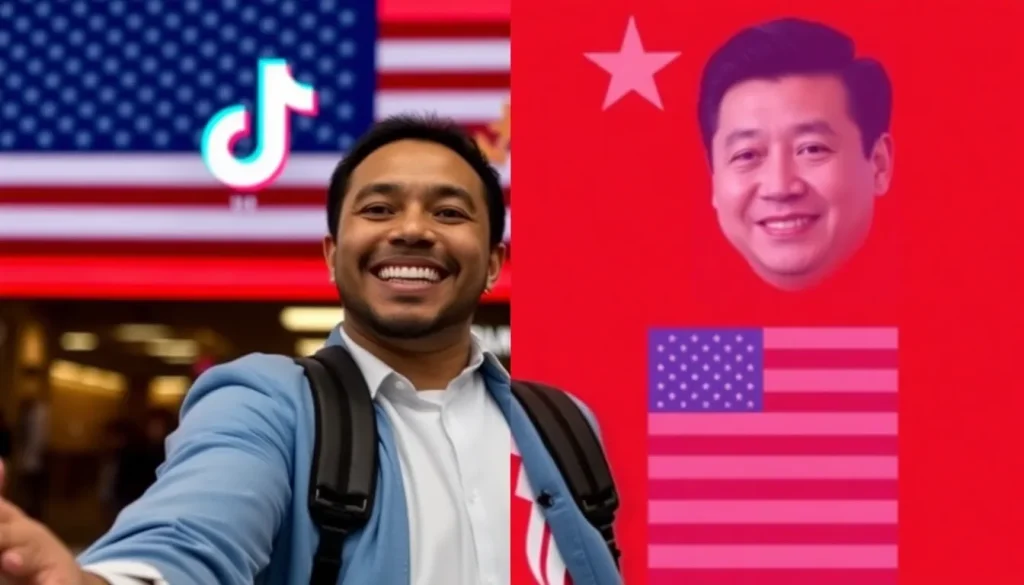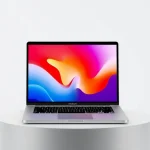US and China share TikTok: Americans lead while Asians keep algorithm

In an era where social media dominates communication and entertainment, TikTok has emerged as a significant player. With over 1.5 billion monthly active users, it not only entertains but also influences trends and culture worldwide. However, its journey in the United States has been fraught with challenges, especially concerning privacy and security. Recent developments indicate a historic agreement between the U.S. and China, reshaping the future of TikTok.
This agreement not only affects millions of users but also sets a precedent in international tech relations. As the situation unfolds, understanding the implications of this deal becomes crucial for users, investors, and policymakers alike.
- Trump signs an agreement with China: The U.S. retains TikTok, China keeps the algorithm
- The implications of TikTok's ownership shift
- Developing a new app for U.S. users
- Will TikTok face closure in the U.S.?
- China's perspective on the TikTok agreement
- The future of TikTok in the global landscape
- Conclusion: Navigating a complex digital future
Trump signs an agreement with China: The U.S. retains TikTok, China keeps the algorithm
In recent years, TikTok has faced scrutiny in the United States, accused of data theft and posing national security risks. These allegations are not new in the context of Chinese tech companies, but the intensity of the response from the U.S. government marked a significant escalation. Last year, TikTok was banned on government devices, and a lawsuit was filed against its parent company, ByteDance. Ultimately, this led to conversations about a complete ban on the app in the U.S., but former President Donald Trump intervened to prevent such a drastic outcome.
The agreement allows TikTok to operate under U.S. ownership while China retains control over the algorithm, a critical component of its success. Trump announced that the deadline for negotiations has been extended to December 16, allowing sufficient time to finalize the deal, which is expected to take between 30 to 45 days.
The implications of TikTok's ownership shift
This agreement marks a significant shift in the landscape of social media ownership and governance. By allowing a consortium of American investors to acquire 80% of TikTok, including notable companies like Oracle, the U.S. is taking control of one of the fastest-growing social media platforms globally. The TikTok board will now consist primarily of American members, including a representative appointed by the U.S. government, indicating a direct influence on the platform's operational strategies.
- Control over user data will now be under U.S. jurisdiction, potentially improving privacy standards.
- The platform's algorithms will need to be redesigned from scratch, given that China retains the original algorithm.
- Users in the U.S. may experience changes in content recommendations and overall functionality.
As the agreement progresses, it raises questions about how this will affect the user experience and whether the changes will meet regulatory expectations regarding data privacy and security.
Developing a new app for U.S. users
With the new ownership structure, the future of TikTok in the U.S. will likely involve a significant transformation. The American team will have to develop a new version of the app tailored to local regulations and user preferences. This adaptation could lead to:
- A redesigned user interface that prioritizes user privacy and data protection.
- Content moderation policies that align with American standards and social values.
- Innovative features that differentiate the U.S. version from its international counterpart, potentially affecting global user engagement.
Experts believe that this transition may not only affect TikTok but also set a precedent for how tech companies operate in international markets, especially amid rising concerns over data privacy and national security.
Will TikTok face closure in the U.S.?
Speculation about TikTok's potential closure has been rampant, fueled by past threats from the U.S. government. However, the new agreement suggests that the app will not only avoid closure but will thrive under American ownership. This outcome demonstrates a shift from outright bans to negotiated solutions, reflecting a more diplomatic approach to international tech relations.
China's perspective on the TikTok agreement
From China's standpoint, retaining control over TikTok's algorithm allows it to maintain a strategic advantage in data analytics and content recommendation systems. The algorithm is vital in driving user engagement and ensuring the platform's continued success. Analysts suggest that while the U.S. gains control over the app, China’s hold on the algorithm means that it can still influence TikTok’s performance globally.
The future of TikTok in the global landscape
As TikTok navigates this new chapter, its role in the global social media landscape will be closely watched. The agreement between the U.S. and China could pave the way for similar negotiations involving other tech giants, potentially reshaping how countries interact with foreign technology companies.
In a related discussion, experts have been analyzing the broader implications of such deals. A recent video explored the potential outcomes of this agreement and how it might affect user experience:
As the deal unfolds, the global community will be watching not only for the operational changes within TikTok but also for the potential ripple effects in international trade and tech policies.
The TikTok agreement symbolizes a growing trend where technology, politics, and international relations intertwine. As the app continues to evolve under new ownership, it will serve as a case study for the future of digital platforms operating in a globalized world marked by increasing scrutiny and regulatory challenges.



Deja una respuesta